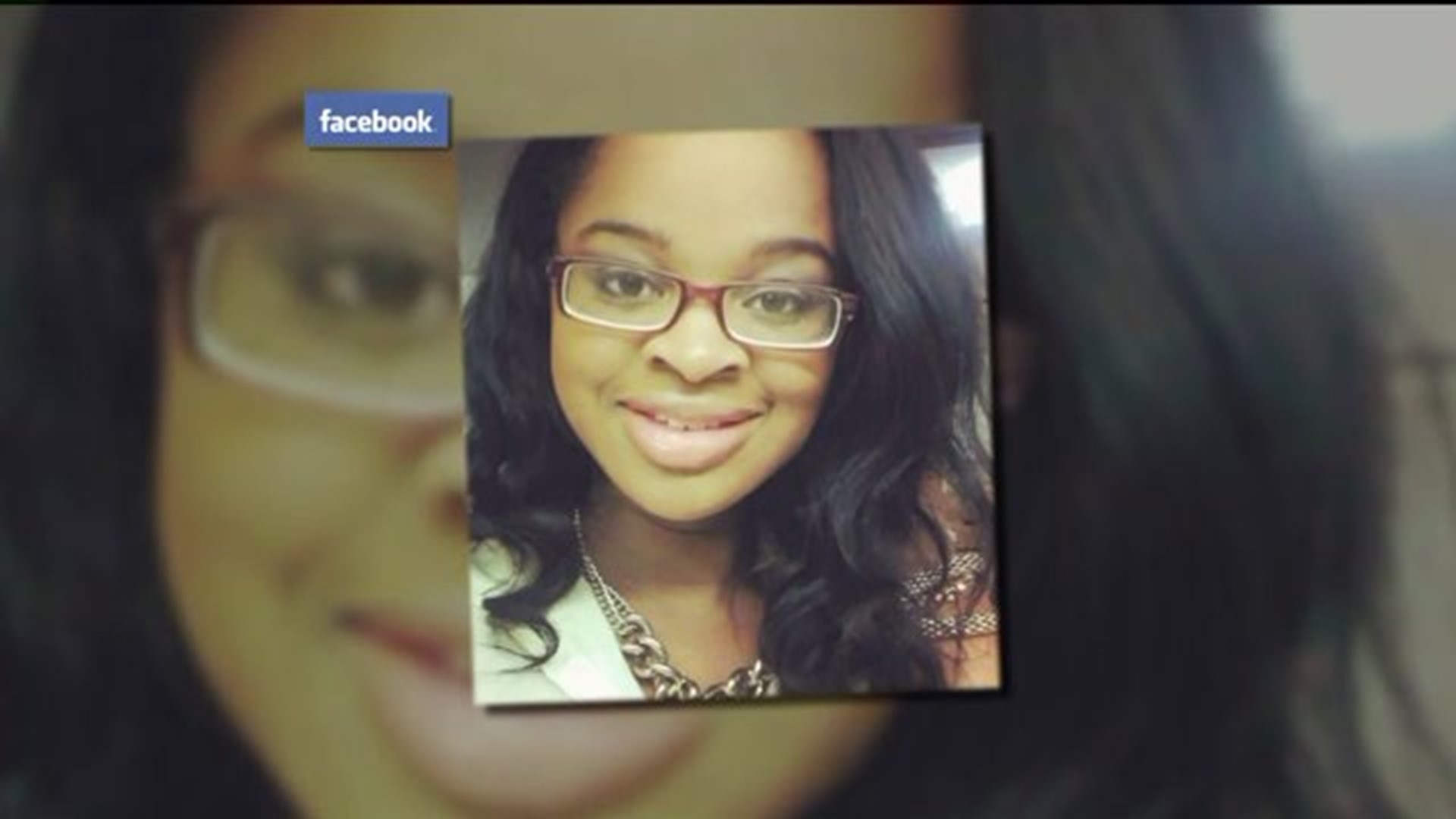BRIDGEPORT — For the second time in a year, a jury in the murder trial of Jermaine Richards is deadlocked.
Before the long holiday weekend, the judge urged jurors in the minority to consider the opinions of those in the majority and to keep deliberating in the trial of the Bridgeport man accused of killing and dismembering his girlfriend, Alyssiah Wiley.
The jury went back to deliberate at 10:30 a.m., but ended Monday without any further movements.
Allysiah Wiley’s mother shook her head Monday as her eyes welled up, not wanting to believe that her murdered daughter would not receive justice yet again.
Richards, 33, of Bridgeport, was arrested in 2013 and charged with murder of Wiley, 20, who was missing for 27 days before some of her remains were found in a heavily wooded area of Trumbull, roughly a mile and half from Richards’ Bridgeport home.
In March 2015, Richards’ first murder trial ended in a mistrial because the jury could not reach a unanimous verdict in determining whether he killed his former girlfriend, who was a 20-year-old Eastern Connecticut State University student at the time of her death. Then, last Thursday, during day four of jury deliberations for the retrial, the new jury members announces they too were deadlocked.
“It's a nightmare that I can't wake up from,” said Corrinna Martin, Wiley’s mother.
After Judge Robin Pavia urged the jury to be open to one another's views and continue deliberations, the jury asked for her to clarify the difference between murder and manslaughter.
Murder carries an imprisonment of 25 years to life. Manslaughter has a sentence of one to 20 years.
Monday morning, the judge told the jury they would have to find Richard's not guilty of murder before they could consider manslaughter. But there was still no verdict reached after day five of deliberations. Jurors asked for and received permission to review the testimony of three individuals, including a police officer, as they begin their sixth day of deliberations on Tuesday.
A major roadblock for the jury could be the fact that there is no concrete evidence or witnesses to the crime; the evidence is mainly circumstantial. Martin says that should not matter “because I know the type of person that he was before. And I know the type of relationship that she was in.”
Wiley was last seen alive April 19, 2013, when Jermaine Richards picked her up at Eastern, which was recorded on surveillance video from her dormitory.
“Even with circumstantial evidence, the facts are the facts,” said Martin. “He himself said he dropped her off. Then, no one hears from her after he claims he dropped her off?”
Martin believes that what state police learned from one of Richards’ friends should be incriminating. “He said he was a nurse and that he knew how to get rid of her or her body and that she didn't know who she was messing with,” noted Martin.
Investigators say records from one of Richard's cell phones helped lead them to her remains on Quarry Road in Trumbull 27 days after she was last seen.
Martin says she last saw her daughter in person about a month before her disappearance. In the three years since her daughter's death, Corrinna Martin has turned her extreme pain into hope for others.
“Bringing awareness and reeducating all of us about the horrific affects of dating and to domestic violence,” said Martin, the founder of Mothers of Victims Equality, Inc., whose mantra is "you shall be heard."
“As long as I have breath, she's not silenced,” said Martin. “She will be heard and justice will be served. One way or another, justice will be served.”

